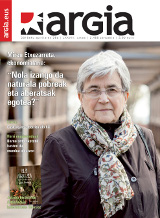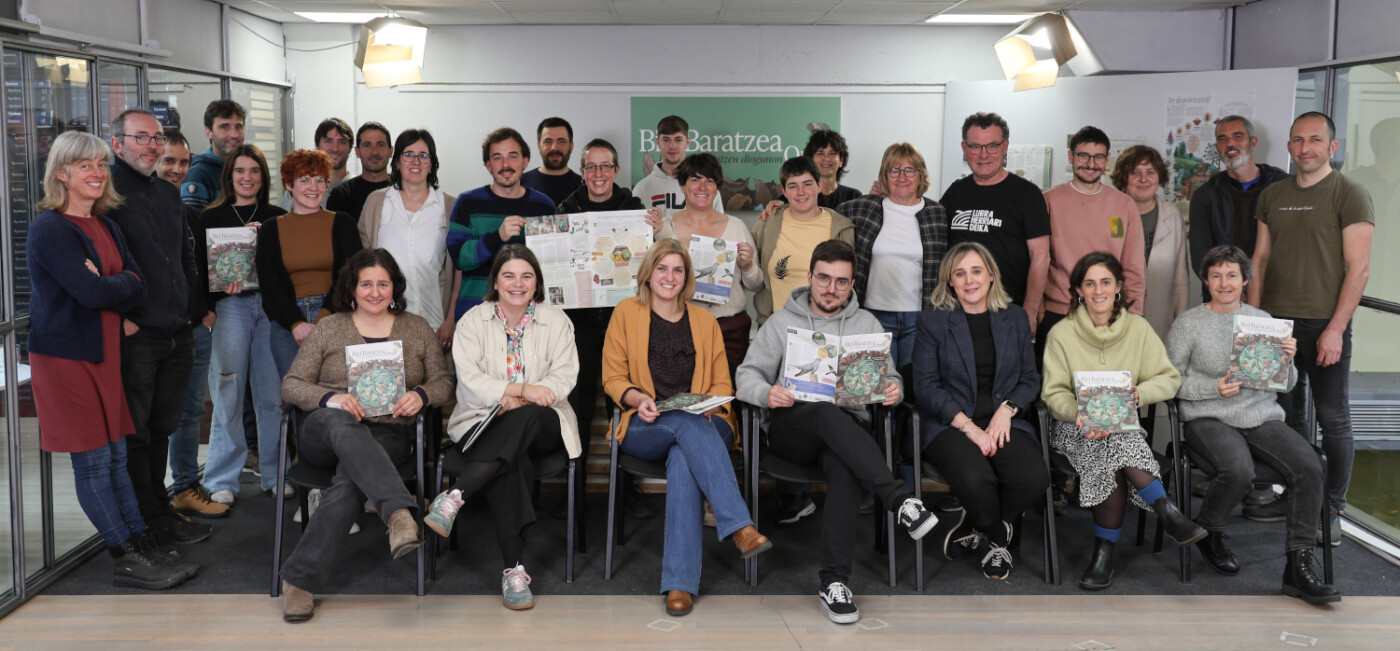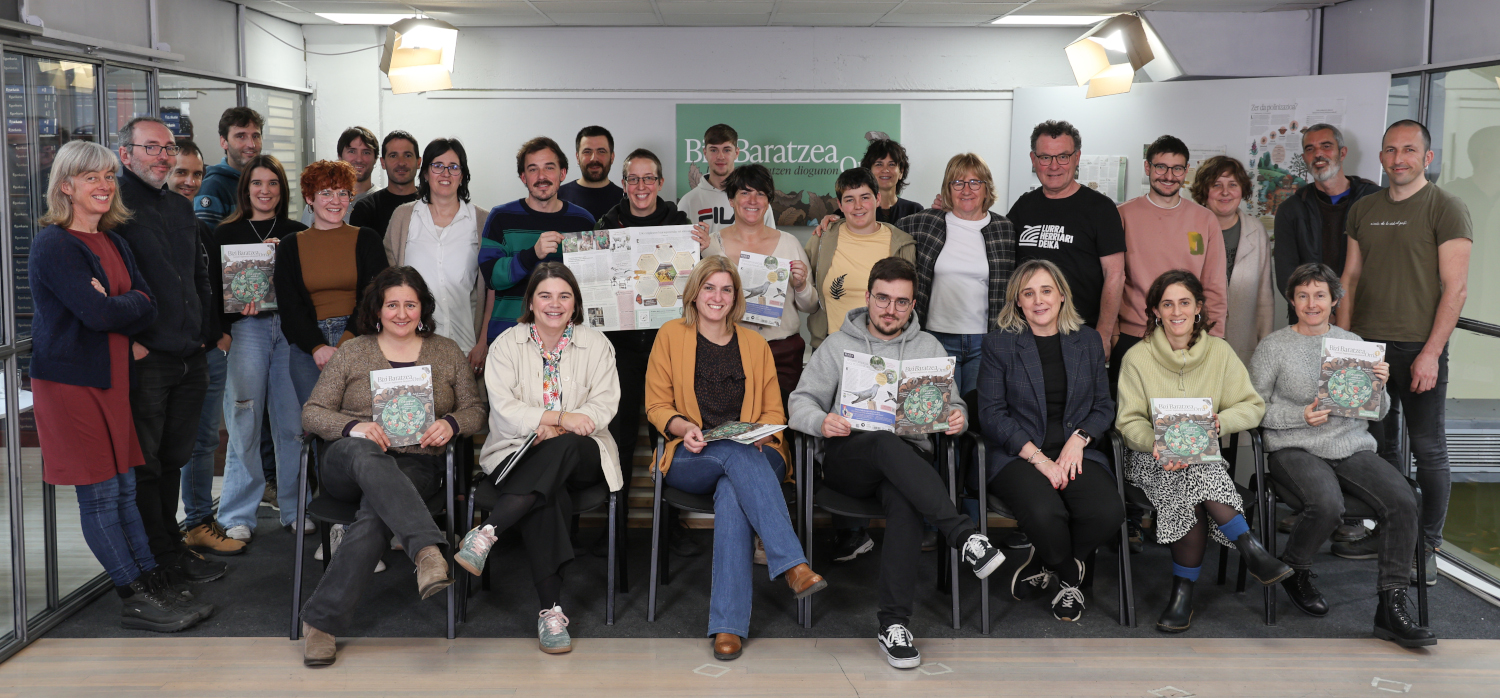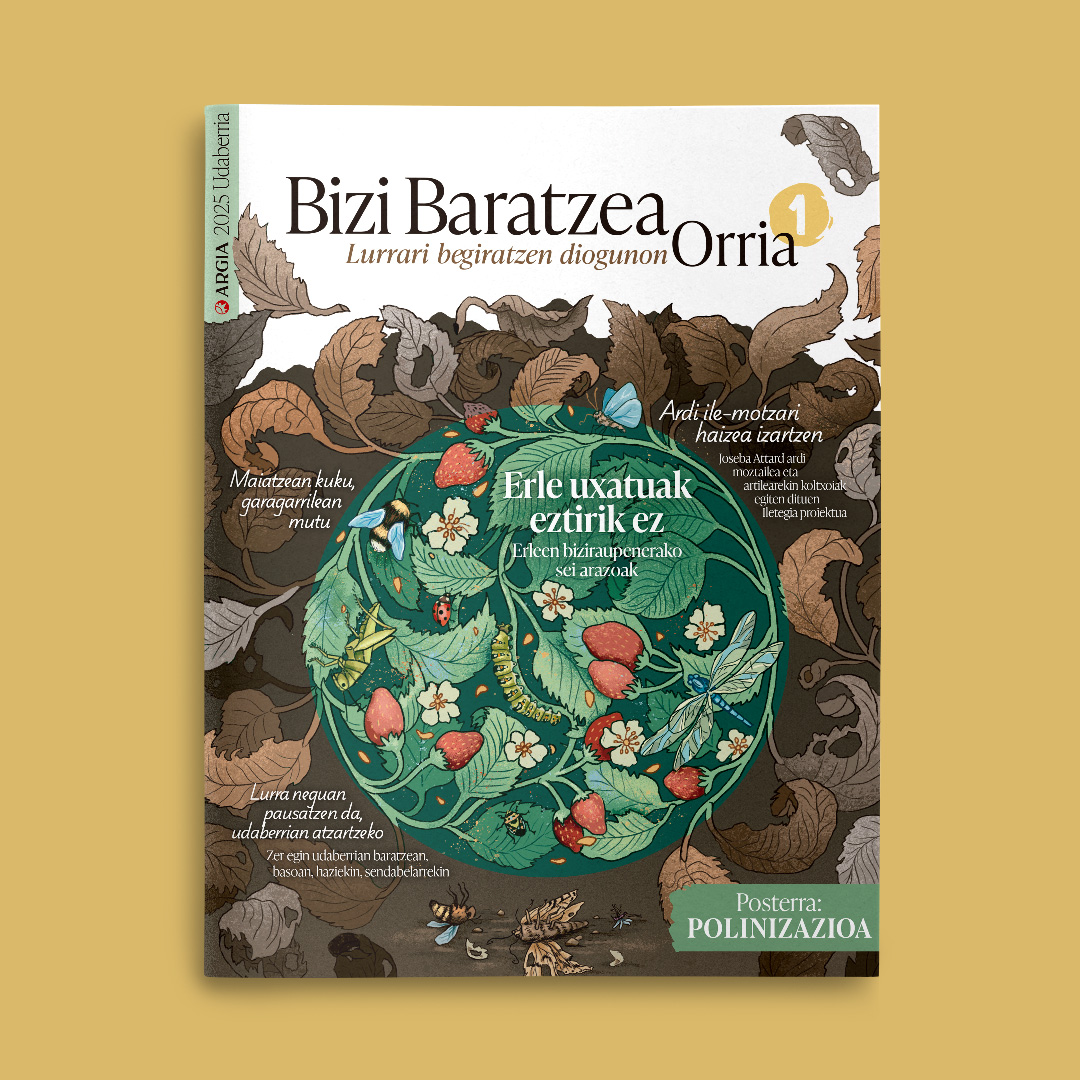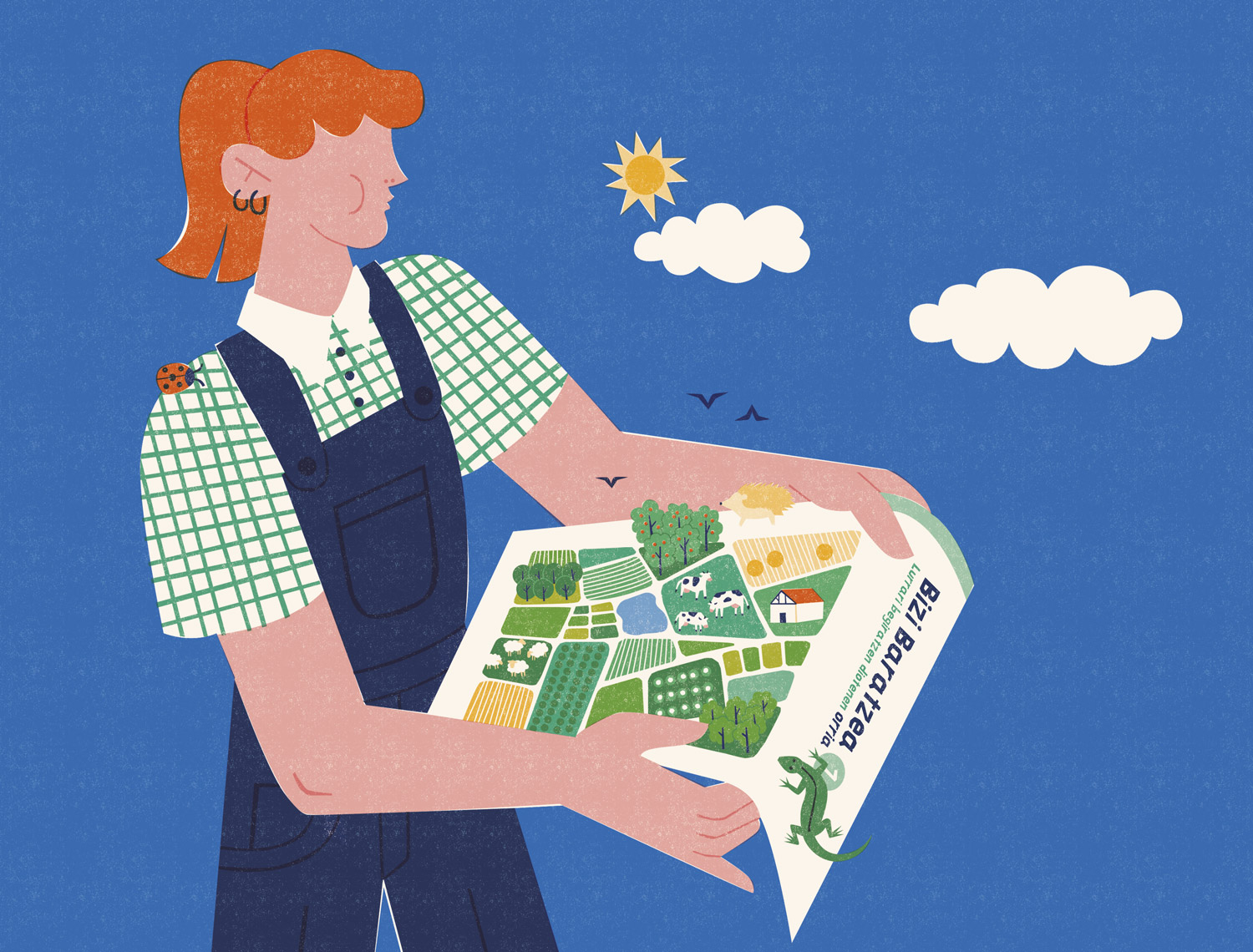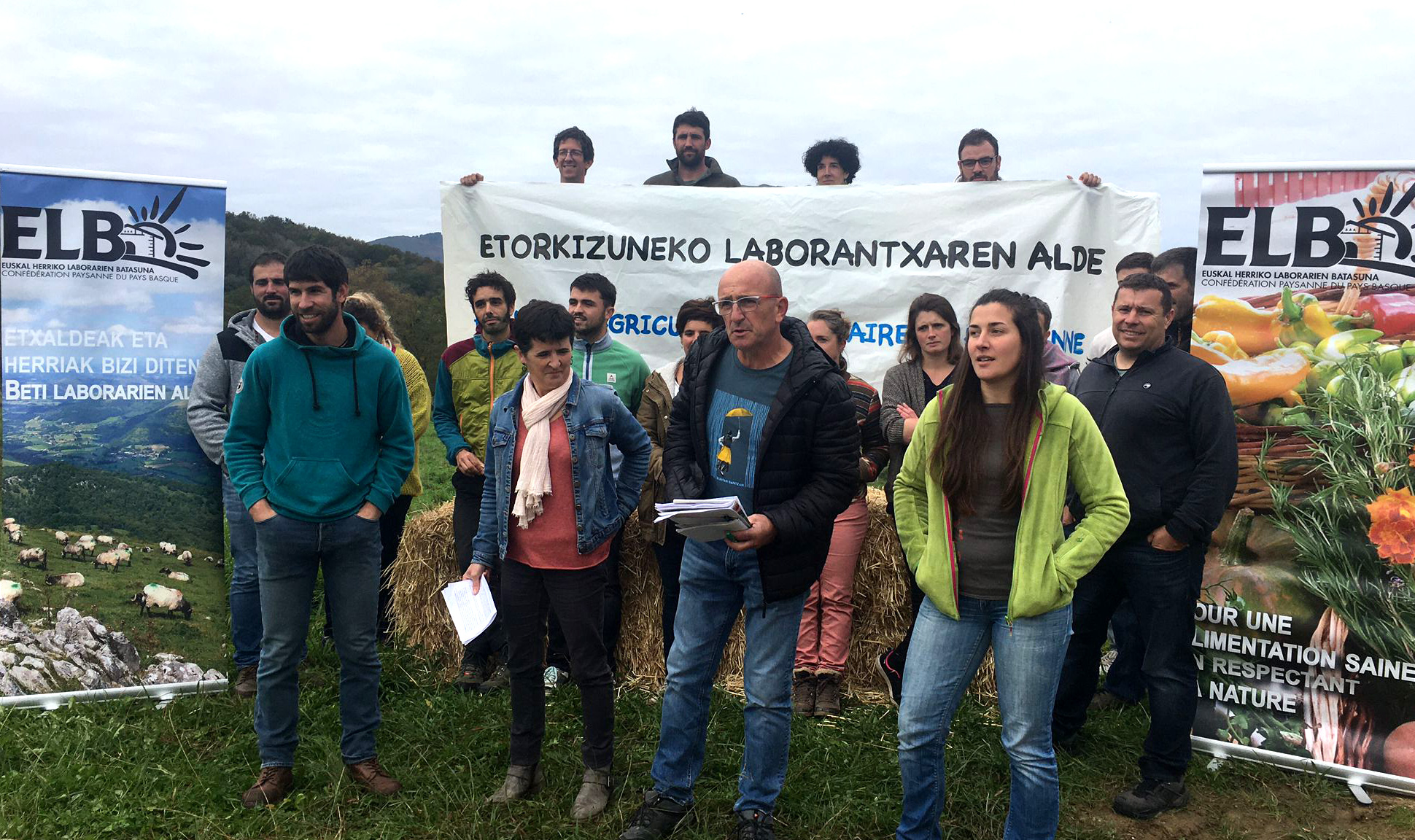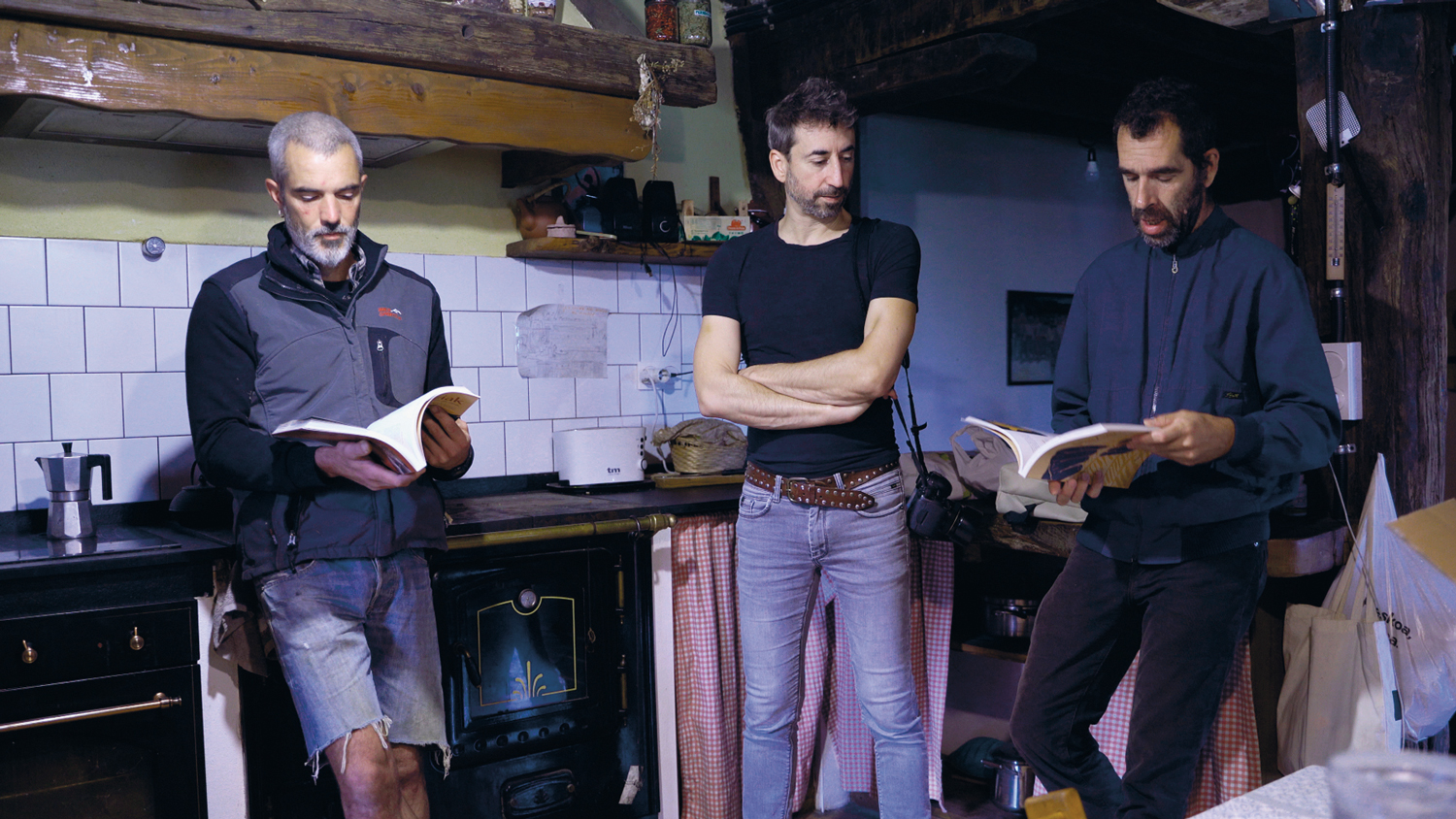"The garden is becoming a revolution."
- Usurbil, 1961. Landscape architect and agronomist specializing in cultural landscape, dedicated in recent decades to collecting and disseminating knowledge about the plantas.Cada week, Errekondo has been writing articles in Argia for about twenty years, and is about to materialize a project that “intends to give another way to this informative work”: Bizi Baratzea, a book prepared in collaboration with this magazine. On the eve of the presentation that will take place on April 28, the author explains why this work is being done.
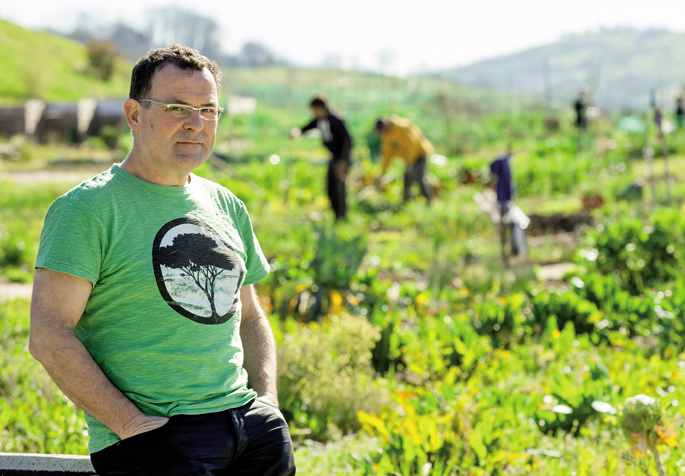
He usually writes about plants in the Light, but the subject of the book is more concrete: horticulture. Why choose yourself?
Among other things, because something special is happening in the garden: the revolution comes. The land becomes the orchard, but the orchard is becoming a revolution. In recent years, in organic farming, and those of us who are working, we're seeing that there's a flip, a twist. The passion for the orchard is booming, and we must harness this passion to explain our vision. I think people want it: horticulture, but linked to the one here, which will focus on the knowledge of always and which is based on quality. Quality of what you eat, quality of the land and the environment... From there, the idea is that those people who want to start in the garden have an easy, simple base and with that passion to start, that they stimulate that strength. We've made a very graphic, easy-to-read book, and above all, it gives importance to what you have to do: tricks, curious things... The situation in the production of books here, and especially in the garden, is serious, there is a great lack of work done locally.
The point of view of Euskal Herria, you mean?
Yes, clearly. Maybe we go to the Southern Basque Country, near the Ebro River, there's more information, because in Spain, Catalonia, Italy -- a lot of work has been done, in similar lands. But on the Atlantic side there is a big problem: the books we use are Italians, Germans, English... And here they are not worth it. We have to think that the Atlantic Basque Country is one of Europe’s greatest climatic curiosities.
Why?
First of all, it rains differently. But we don't have extreme weather conditions, in that sense it's a paradise. It's not tropical, but ...
We have two springs, as the book says: spring and autumn.
That's right. And that helps a lot. But it has to be constantly taken into account. Some techniques, which are almost essential in other places, cannot be used here. Water saving, for example. If we do these things here, we do nothing but aggravate the problems we have here.
What problems?
The biggest thing here is excess water. If we are working at Tudela it is important to maintain the water, but if we use the same technique at Bermeo we will surely rot all the plants.
A little water, so to speak?
The problem is that most of the ills that generate that excessive moisture are fungi. Fungi develop where there is moisture and a warm environment, which makes them a paradise. So we needed a book, well, not necessarily a book, but we did, in a way, collect and prepare the information according to our way of thinking. And we've taken that step. I think it's important to know. Bizi Baratzea is a book designed to adapt to the conditions here.
The book is therefore dedicated to the Basque Atlantic side.
Almost entirely. It is also valid for the south, and in the vegetable part I have tried to unite the two parts. But it's hard. The most important thing is to realize that the book provides basic information and that it has to be adapted by itself. But not just from one side to the other. Similarly, it is not the same thing to work in Bermeo as in Markina. I would say more: in two places in the same town we have two orchards, the situation may vary. I think it's one of the first things I say in the book entry: it's more important than the book, that when we have to start in the garden, we have a cayer and a pencil. And we collect everything that happens and we do, write. In two or three years, we'll have amazing information.
I mean, every orchard is a world.
And also every horticulturist. If we can help each other and collect the history of each land ... I believe that this book is the beginning of a journey, I believe that we should take advantage of the facilities provided by the current technological means to create a universe of Basque horticulturists. And to share the knowledge that you have acquired in that universe.
That passion for going back to the vegetable garden that you mentioned at the beginning, what has created it?
The crisis has a lot to say; I would say that all the crises in our society. Economy, crisis of the social model – people live in isolation – many people are sick, not perhaps sick, but psychological, emotional... Once all this is gathered together, this passion for the garden cools down. In addition, today it is modern to work in the vegetable garden, municipalities set up land, they are creating community gardens, consumption groups are becoming more important... The quality of being local, ecological, not very polluting -- it's becoming more and more important.
The book serves to start from scratch.
Yes, it serves for the most determined of the street people who know nothing. I would like this book to serve to awaken the desire of an orchard that knows nothing, and on the other hand, to broaden the knowledge of what it is doing in the garden, to do other things in a different way. Why not make asparagus in Altza?
Some say that the Plants of Light section can have another name, because with the excuse of plants it talks about everything. Not always the plants.
I always talk about plants. It's all plant. Everything, everything we know, comes from a flower. Without flowers there would be nothing. We should constantly worship the flower. So, talking about anything, we're talking about plants. I do the opposite game: talk about everything from the floors. My favorite theme is ethnobotany; that is, the importance of plants in history, development, culture -- of society. I always talk about people in the articulation, but we have such an anthropocentric view of our environment and of everything that happens to us, that we forget about the real things. And I try to remember the little plant behind it.
That's why you say that at the beginning of Huerta Bizi, there are plants.
Of course. Nobody can be as cautious as people. How many millions of years have we been here? A couple at most? How many thousand years does our language have here? On the contrary, the Azeribuztarras to which I referred recently in an article were the most important forests of 300 million years ago. 300 million years! And here they are. There are plants, without a doubt, and the first sentence of the book, which I say before I start anything, is the following. In the paragraph that I refer to each of the vegetables, I explain something very important for the proper functioning of the vegetable garden: on what side should it be placed. The name of this section is “Nor norekin”. A great friend who works around the language, when he read it, told me: here, in theory, you should get “with what” and not “with whom”. I became angry. How? Who they are before us! What would we be without plants?
Gaur, martxoak 27, ARGIA komunikabidearen egoitzan aurkeztu dugu Bizi Baratzea Orria, urtaro bakoitzean zabalduko den aldizkari berria. Horrekin batera ospatu dugu ARGIAren Bizi Baratzea proiektuak 10 urte betetzen dituela aurten. Bizi Baratzeako kolaboratzaileak eta ARGIAko... [+]
Urtaro bakoitzean kaleratuko den aldizkari honek Lurrari buruzko jakintza praktikoa eta gaurkotasuneko gaiak jorratuko ditu. Formato oso berezia du: plegatutako orri handi bat da eta zabaldu ahala poster handi bat agertuko zaigu barnean. ARGIAk sostengatzen du Bizi Baratzea... [+]
Gaur abiatu da Bizi Baratzea Orrian kide egiteko kanpaina. Urtaro bakoitzean kaleratuko den aldizkari berezi honek Lurrari buruzko jakintza praktikoa eta gaurkotasuneko gaiak jorratuko ditu, formato oso berezian: poster handi bat izango du ardatz eta tolestu ahala beste... [+]









